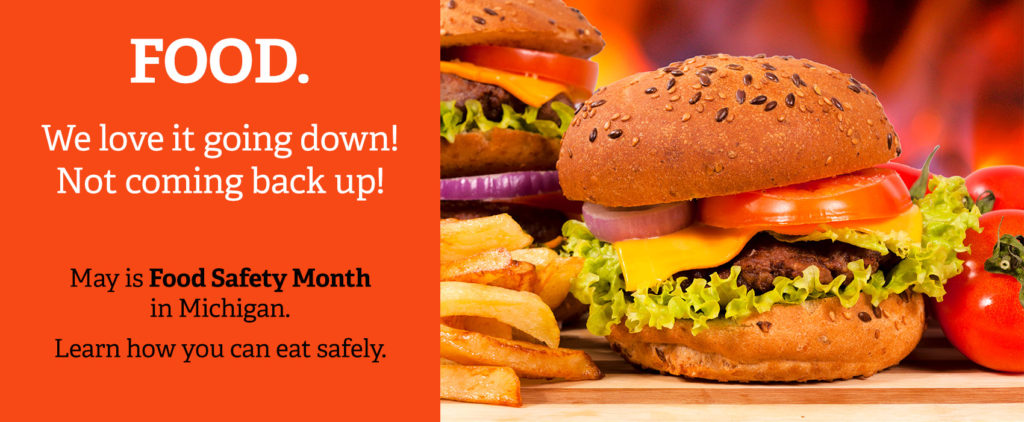Let’s face it…most of us love to eat, but no one wants to get sick from it. There is always a risk of getting a foodborne illness whether you’re eating at home or in a restaurant.
What foods are most associated with foodborne illness?
- Raw or undercooked foods such as raw or rare meat and poultry, raw eggs, and raw shellfish.
- Foods that mix the products from many animals such as bulk raw milk, pooled raw eggs, or ground beef.
- Food that is unpasteurized including fresh milk, fresh squeezed fruit juices, and farm fresh eggs. Pasteurization is a process that heats products to a temperature that kills contaminates before use.
Improper handling of food is the most common cause of foodborne illness. The two most common mistakes are:
- Food that is not cooked all the way through or is stored at temperature that is not cool or hot enough to prevent contaminate growth.
- Exposing food items such as salad greens or other fresh foods to raw foods through unsafe food preparation practices such as cutting raw meat and then chopping salad greens without properly cleaning the cutting board between uses. This type of contamination is called cross contamination.
District Health Department #10 works to protect the health of consumers by assuring that the food prepared and served at county licensed food service establishments is safe to eat. They do this by:
- Make licensing recommendations to the Michigan Department of Agriculture
- Conduct regulatory inspections at all licensed food service establishments
- Provide food safety education for food service owners, managers, and staff
- Assuring that management level food service staff is highly trained and certified in food safety
- Investigate and identify sources of foodborne illness complaints
Quick Links
DHD#10 – Food Safety
Public Health Law
Michigan Association for Local Public Health
– Foodborne Illness
– Food Supply Safety

